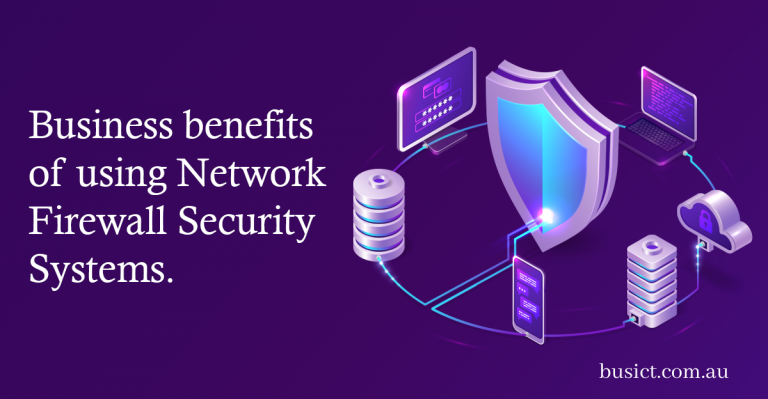What’s a Firewall?
A firewall is a security device, that often comes in form of computer hardware and software, and helps in protecting your network through filtering traffic and banning outsiders from unauthorized access to the private data in your computers. Along with blocking traffic, a network firewall stops any malicious software from infecting the computers as well. Firewalls generally provide certain levels of protection depending on your personal or business needs.
The Firewall’s major job is to act as a filter between your computer and the other network and helping you to protect your network and information through managing your own network traffic and through validation of access by analyzing the network traffic and anything malicious such as hackers and malware.
Benefits of having a Firewall for your Business Network
Having a Network firewall security system secures your network on one hand and ensures that you have uninterrupted network availability with robust access to cloud-hosted applications on the other. These are some advantages of having a firewall security system:
- It defends threats, malware, and hackers that try to gain access to your business data.
- It has the ability to monitor network traffic.
- It contributes in protecting from virus Attacks
- It Prevents your system from Hacking threats
Types of Firewalls
Firewalls in any network are expected to keep your home and corporate networks safe & secure. It’s a simple program designed to filter out unnecessary or conflicted information that pass through your network, as customized by the network security user. Let us walk you through the types of network firewall securities you can opt among.
- Hardware firewalls: These types of firewalls can often be found attached on routers or networking devices, or even used separately as stand-alone products. Needless to mention, these firewalls are considered essential to managed IT solutions.
- Software Firewalls: Mainly installed in our computers, these firewalls can be customized and provide moderate levels of control on the protection features and functions, making them weak cases of advanced network security breaches.
- Application layer firewalls: what makes them unique is their ability to make a layer of security mechanisms on the top of defined applications like the rule of HTTP connections, FTP servers, etc., to laser point and block attacks to the network.
- Packet Filtering Firewalls: These make users able to examine the passing packets through-out the network and allow or deny user-defined entries of packets.
- Circuit-level Firewalls: Once the UDP and TCP mechanisms are applied, this particular firewall applies a number of security measures. In this, the packets are exchanged directly between the hosts without further oversight or filtering.
- Proxy server firewalls: These are mainly responsible for checking on the messages which enter and exit a particular network while hiding the real network addresses from external inspection.
- Next-Gen Firewalls (NGFW): These firewalls make users able to filter moving traffic through a network by determining the application types and ports that they are assigned to. In order to have greater and strong security and more self-sufficient network inspection, this firewall blends standard firewall with additional functionalities.
- Stateful Firewalls or Third Gen. Firewall Technology: This type of firewall classifies traffic based on the destination port and tracks every interaction between internal connections. Interactions are no longer defined by the ports and protocols as these new firewall technologies increase usability and assist in expanding access control granularity.
Users are able to use more than one of these firewall technologies at a time for their overall network security.

Things to remember:
Firewalls act as the first line of defense in your network security. Considering a firewall as the only option for securing your home network is not a wise way to manage your network security. Make sure that all of your internet-enabled devices or mobile devices are updated with the latest operating systems, web browsers, and security software to strengthen your security.
Again, it’s important to understand that firewalls are not designed to remove or clean viruses, but they help you to assist your system with virus detection which is an extremely essential role of an overall virus security plan.
They are a key part of your overall security, especially when their different types work together to provide an umbrella of protection to your devices. An IT consulting company can help ensure that your business and private network, computer, and data are safe and secure.

